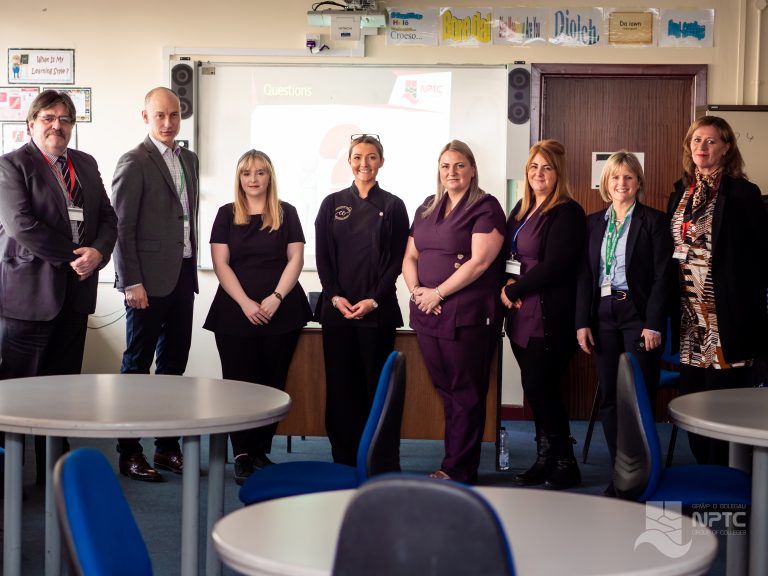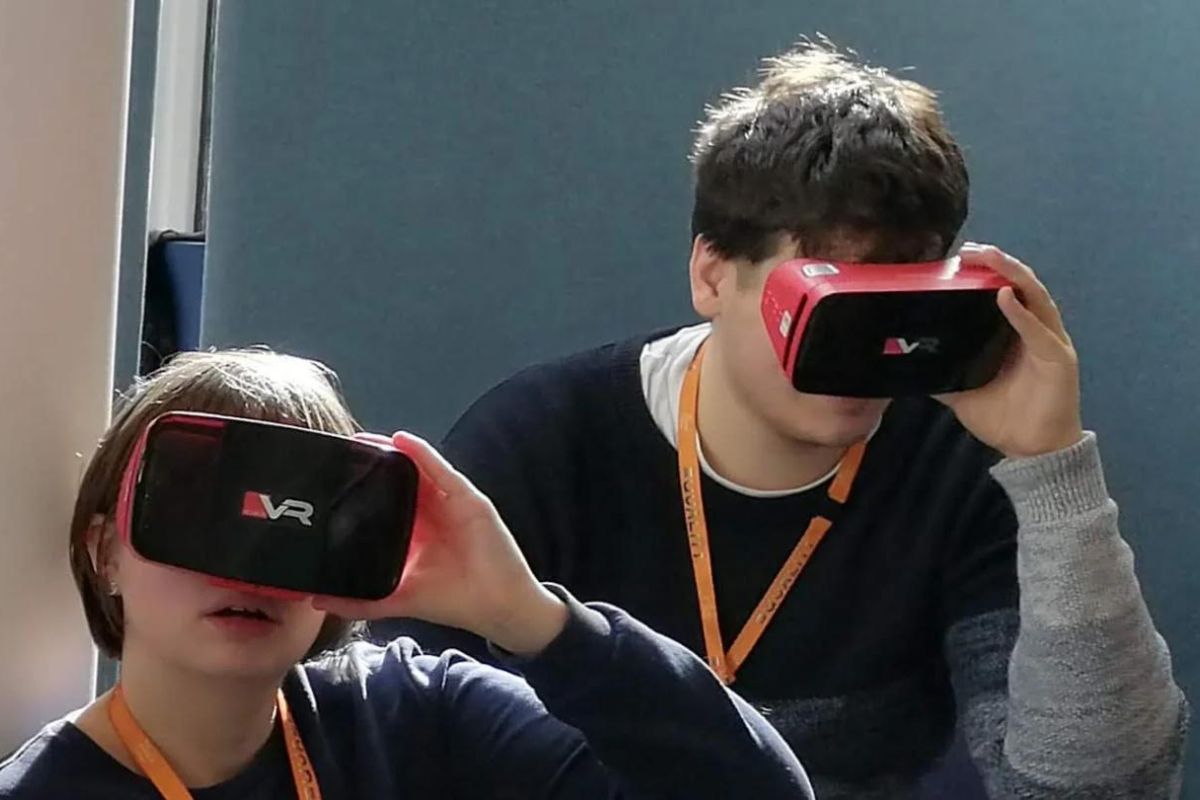The importance of #Erasmus+ for personal and professional development of vocational learners

NPTC Group of Colleges hairdressing and applied therapies alumni welcomed Stephen Kinnock MP to Afan College recently, to recount their Erasmus+ (the European Union programme for education, training, youth and sport) experiences in Girona, Spain.
Mr Kinnock was keen to hear the students’ experiences first-hand to evidence to the UK Government just how important the programme is for the personal and professional development of vocational learners.
Erasmus+ enables young people to study, work, volunteer, teach and train in other countries. It boosts skills and employability, as well as modernising education, training, and youth work. It also provides professional development opportunities for educators including study visits, job shadowing, training and the development of innovative resources.
Over the past 30 years, 600,000 people from the UK have taken part in Erasmus+. Between 2014 and 2020, Erasmus+ will have been worth £793 million to the UK.
Since 2015, hairdressing and applied therapies students from across NPTC Group of Colleges have travelled to Spain through Erasmus+ to work at salons and spas across the city of Girona in Catalonia.
Mr Kinnock heard from former students Isabelle, Cherelle, Jane and Bethan, all of whom are now running their own businesses or working within the industry.
Isabelle explained how her time at the Hotel Balneari Vichy Catalan had helped her. She said:
“I was able to develop a better understanding of working life and how to deal with customers. It gave me the confidence and independence I needed to set up my own business and I am now running a successful beauty therapy company, Isabelle’s Beauty Room, based in Centerprise, the Enterprise Hub in Neath College”.
Mr Kinnock asked the group what challenges the students had faced during their work experience. They all agreed that one of the biggest challenges was the language barrier, as most of the staff and clients spoke Catalan.
They all learnt bits of the language through language apps and their colleagues, enabling them to communicate with their customers. The commute to work was something that was new to a lot of the students, they had to navigate their way across the city every morning and this helped them to develop their own independence and gain in confidence.
They were quick to point out that the support from the lecturers who travelled with them was second to none, they were always available for support and guidance and gave them encouragement throughout.
The group explained that the spas in which they were working offered different treatments compared to those in the UK. This opened their eyes to many different possibilities and they were able to practice techniques they had never experienced before.
Another benefit of being on placement in Girona was the opportunity to undertake some amazing cultural visits in and around Barcelona and share experiences that will live with them for years to come.
Juliana Thomas, Head of School: Hairdressing and Applied Therapies said:
“Hairdressing and Applied Therapies staff are all delighted with the presentations that our students delivered. It was a clear message to all that their experiences in Spain due to Erasmus+ funding has enabled them to pursue not only business aspirations but also to undertake the Higher Education pathway with a PGCE qualification”.
After returning from their Erasmus+ experience, a number of the students competed in national and international skills competitions, with Cherelle picking up a bronze medal.
After completing their studies and beginning their careers in the hairdressing and applied therapies industry, all four alumni have since decided to return to Afan College to undertake PGCE teaching qualification.
They agree that Erasmus+ helped give them the confidence they needed to take the next step. So who knows, in a few years’ time, they might be taking their own students on an Erasmus+ adventure!












Responses